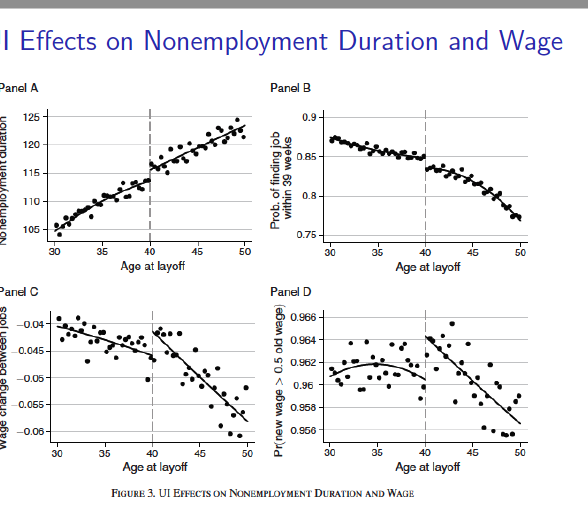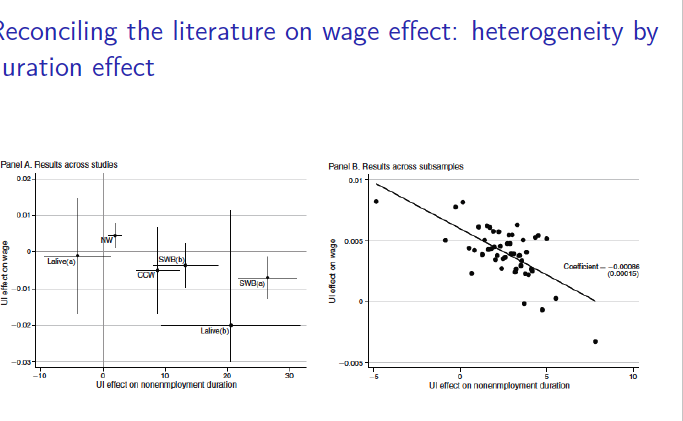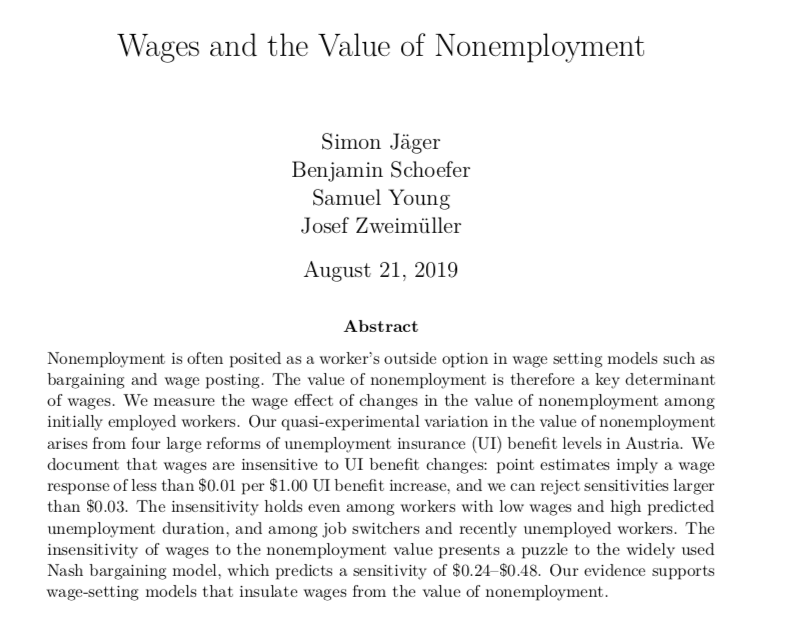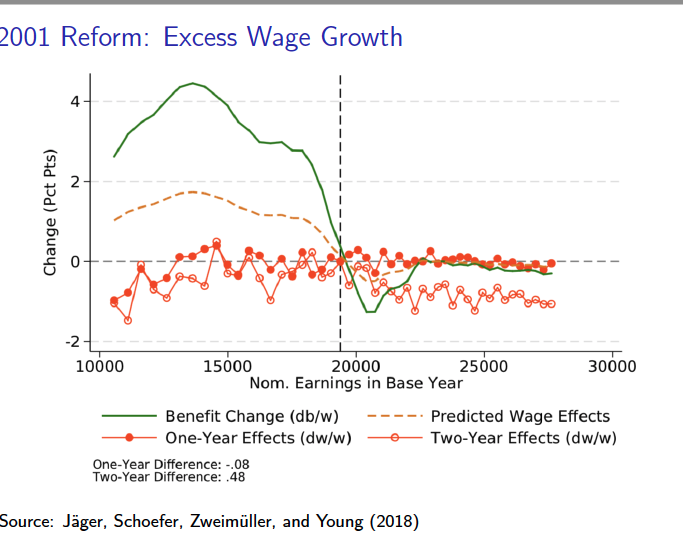What do UI benefits (B) do to wages?
Generally we expect a higher B to:
1) increase wages as searchers become more choosy (higher reservation wages)
2) increase wages as it strengthens workers bargaining position from not having a job.
The evidence on both fronts quite weak!
Generally we expect a higher B to:
1) increase wages as searchers become more choosy (higher reservation wages)
2) increase wages as it strengthens workers bargaining position from not having a job.
The evidence on both fronts quite weak!
On UI benefits: does extending benefit duration raise res wages and hence wages upon re-entry, the best evidence supporting that comes from Nekoei and Weber (2017) using Austrian data.
They find YES, but different from most literature. Why? Because higher B both raises res wage and also may reduce job finding probability (through increased time being unemployed). They show higher B mainly raises wages when it doesn& #39;t raise unemployment duration too much.
What about how UI benefit generosity affects wages for incumbent workers?
Here work by @simon_jaeger and coauthors using Austrian data is quite interesting. They look at changes in UI benefits in and how that affects wages.
http://economics.mit.edu/files/15256 ">https://economics.mit.edu/files/152...
Here work by @simon_jaeger and coauthors using Austrian data is quite interesting. They look at changes in UI benefits in and how that affects wages.
http://economics.mit.edu/files/15256 ">https://economics.mit.edu/files/152...
Perhaps surprisingly (at least compared to "standard" DMP models of wage bargaining and searching & matching), they find little evidence of wage increase in response to UI benefit generosity.
The authors argue that perhaps the very limited effect of UI benefit on actual wages suggests that the bargaining model is less relevant than we think, and that maybe wages are fairly insulated to outside options.
So where does this leave us? I think it& #39;s too early to tell. It suggests we need to look at more types of evidence on how different attributes of UI affect wage setting. And seeing evidence of this in the US context will be quite important IMO. So here& #39;s to MOAR DATA!
\fin
\fin
PS. This is a recap from my grad labor lectures from last week at 14.662 at MIT.

 Read on Twitter
Read on Twitter





